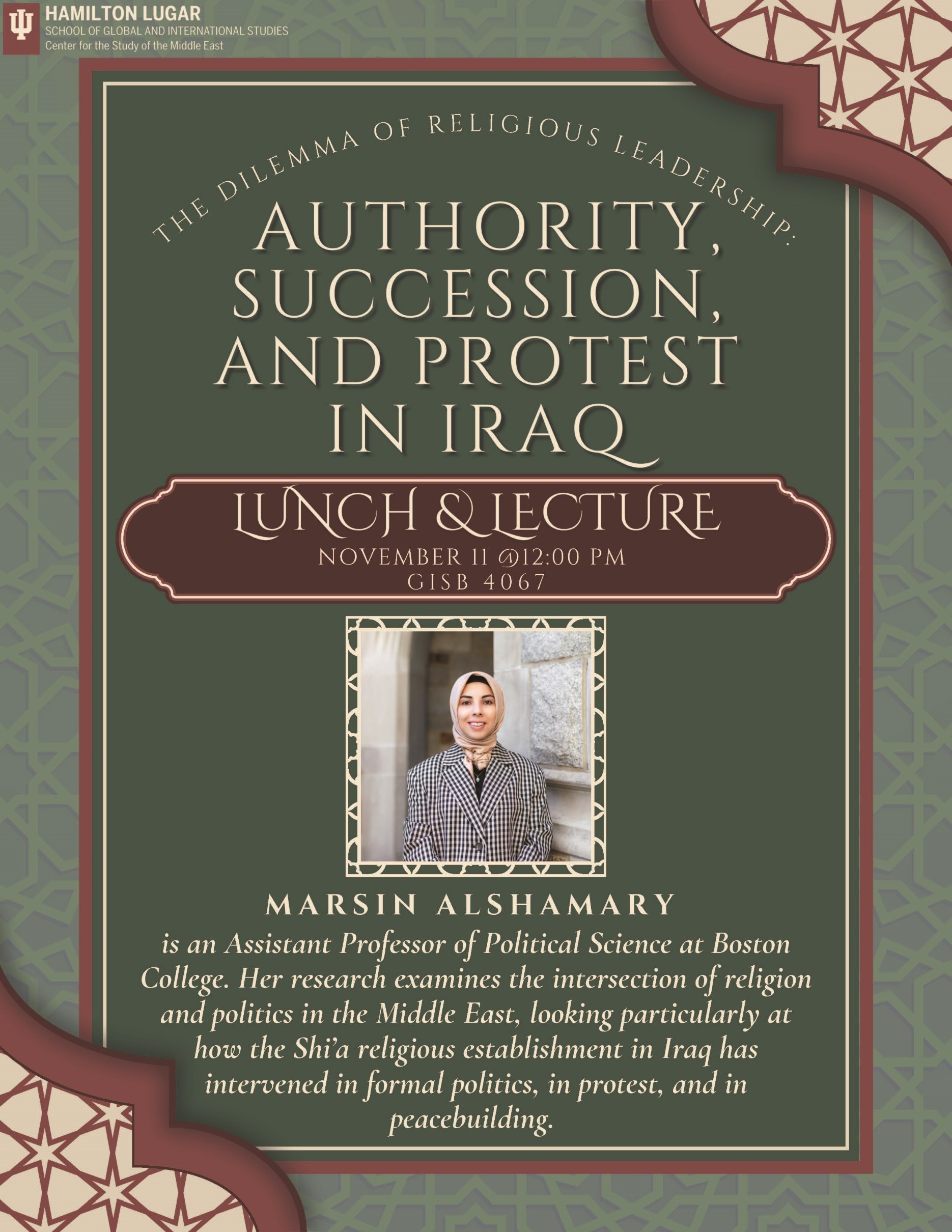On Monday, November 11th, the Inner Asian and Uralic National Resource Center was happy to co-sponsor an event organized by the Center for the Study of the Middle East in which Professor Marsin Alshamary gave a guest lecture, “The Dilemma of Religious Leadership: Authority, Protest, and Succession in Iraq.” Dr. Marsin Alshamary is an Assistant Professor of Political Science at Boston College. Her research focuses on the institution of Shia seminaries in Iraq, which are also known as the Hawza, and how they have preserved both their influence and independence. In her lecture Dr. Alshamary discussed the independence which the Hawza has preserved for themselves in Iraq. During the Ottoman, British and Ba’athist administrations, the Hawza managed to limit government interference and influence in its institutions. This stems from the fact that historically, the Hawza has been funded by a religious tax of their followers and donations rather than funding from the state. This has preserved the independence of the institution allowing it to persevere under various administrations.
In addition to discussing the resilience of the institution, Dr. Alshamary emphasized the influence which the Hawza and particularly its leading figures such as Ayatollah Ali al-Sistani hold in Iraqi society. During the occupation of Iraq by American led coalition forces Sistani urged the country’s Shia populace and leaders to participate in both the constitutional convention and subsequent elections. It was underlined that Sistani and other members of the religious scholarly establishment in the Hawza, generally seek to preserve stability in Iraqi society. However, there is debate on whether certain actions by Sistani and the Hawza help or hinder this goal. Regardless, unrest and civil conflict are seen as threats to the continued existence of the institution of the Hawza.
Overall Dr. Alshamary’s discussion of the Hawza and religious leadership in Iraq was engaging and informative.


